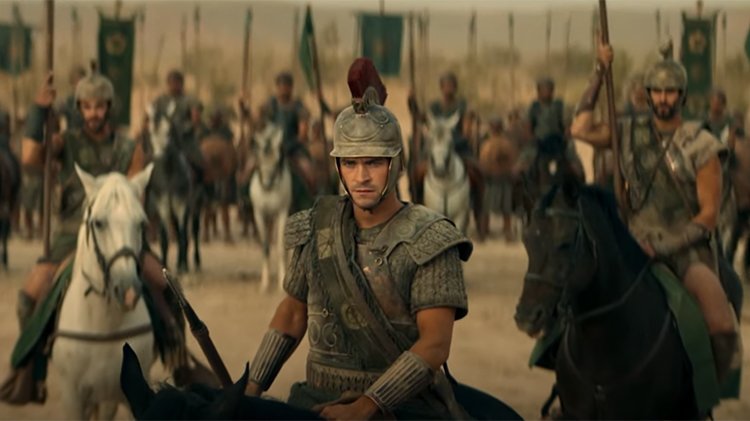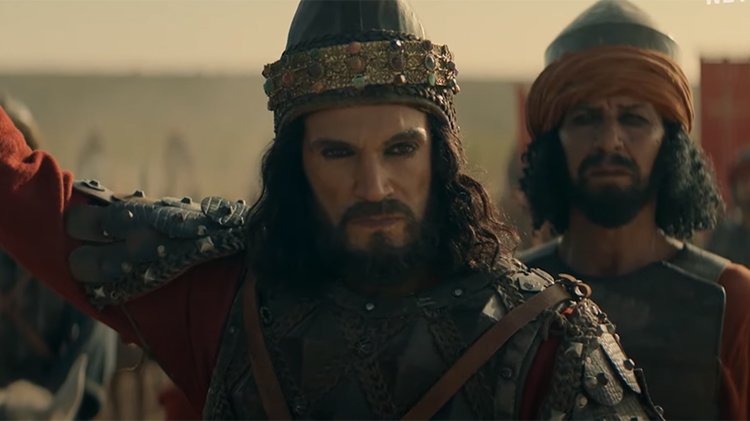A review for "Alexander: The Making of a God"

It really is an amazing Netflix series that tells the story of Alexander the Great, from a young Macedonian prince to his proclamation as a living god and King of Kings.
It was heavily criticized for presenting Alexander as a homosexual with Hephaestion as his romantic partner, but I'm sure they don't say that to smear him, they wouldn't spend so many millions just to advertise a gay Alexander. I believe that they see it as something positive and want to set the good example of Ancient Greece as the first nation that accepted homosexuals.
When he ascended the throne, the young Alexander undertook to realize the vision of his father Philipos, that is to invade the Persian Empire, something that could only be described as a joke because the insignificant and tiny Macedonia could not deal with the vast Persian Empire .
Despite the odds against him he had the confidence and the necessary political and military skills to lead such a struggle. After all, his mother Olympiada had transmitted him that he was the son of Zeus. The practices he followed were unorthodox, he didn't go by the book and did not consider the outcome scenarios of a battle, he was young and daring, he knew what he wanted and he knew how to achieve it.
But he also had a dark side, he could become brutal, kill entire villages or as he killed the Greek mercenaries of the Persians. He had two sides, one was the noble Alexander and the other was the brutal Alexander, you never knew which one you would meet.
The conflict between Alexander and Darius shook the ancient world, the two rulers were so different but they were both sides of the same coin as the series enigmatically says. The Persians did not take him seriously at first, which is why the Persian general Memnon led the Battle of Granicus. After this first defeat Darius took matters into his own hands.

In the Issus battle the stakes were high for both. Darius would lose the western Satrapies and for Alexander it would be the end. The Persians, although superior in numbers feel rather insecure. In the victorious battle, he captures Darius' wife Stateira and his daughter Varsini, but treats them like queens.
Darius seeks a deal to get his family back and end the war. Alexander's generals want it but he doesn't.
Where everyone expects him to move even deeper into Persia to catch Darius by surprise, he decides to head for Egypt. He is welcomed by the Satrape at Pelusio and lets him pass without a fight because he went there as a liberator and not as a conqueror. He was crowned pharaoh to legitimize his authority and thus became a living god. He founded Alexandria to be built by Greek architects to promote trade and culture in the new empire. He went to Shiva's oasis in the oracle of Ammon. Many years before, the Persian King Cyrus had attempted to reach there with his army but without success. A hard journey in the hot desert. At the oracle he received the prophecy that he was the son of Ammon.
Alexander the Great is not presented as a conqueror. The impression I got is that he wanted to unify the world. In fact, he fought the tyrant Persians and not the people of the Satrapies. He wanted to build something new where the cultures of the peoples would coexist peacefully, he did not want to build a Greek or Macedonian empire. But his dream disturbed the Greeks who saw a multicultural empire as hostile.
The series also refers to the differences between the Greeks and the Persians. The King speaks to his generals and they are silent because of fear. But Persia is just as centralized. The Satrapies give their wealth to the capital Babylon. The further away from Babylon, the more barbaric the peoples are considered. Alexander debates, he is skilled in speech, anyone may disagree with him or question him. He saw the Satrapies as civilizations and not as sources of wealth.
Before the Battle of Gaugamela he accepts another compromise proposal from Darius but rejects it. Victory there is final. In Babylon he is addressed as King of Kings and now all the riches of the Persians are his. But he is not complacent nor does he let wealth corrupt him. He is not even sitting on the throne of Persia because Darius, the true King of Asia is out there somewhere.
Darius flees to Bactria, in today's northern Afghanistan, with the aim of organizing a guerrilla movement. General Bissos, however, murders him. Alexander rode the horse for many hours without stopping to find Darius dead and this filled him with grief, he thinks this is no way for a king to die. The last episode closes with the promise of new campaigns even further east, so we will see a second season.
In order to connect yesterday with today, the greek archaeologist Pepi Papakosta is introducing excavations in Alexandria where she guides us through the findings so far and explains why Alexander's tomb is there, because he was buried in Alexandria and the body must have been hidden for not to be looted by the invaders. Although 2,300 years have passed Alexander still inspires.







